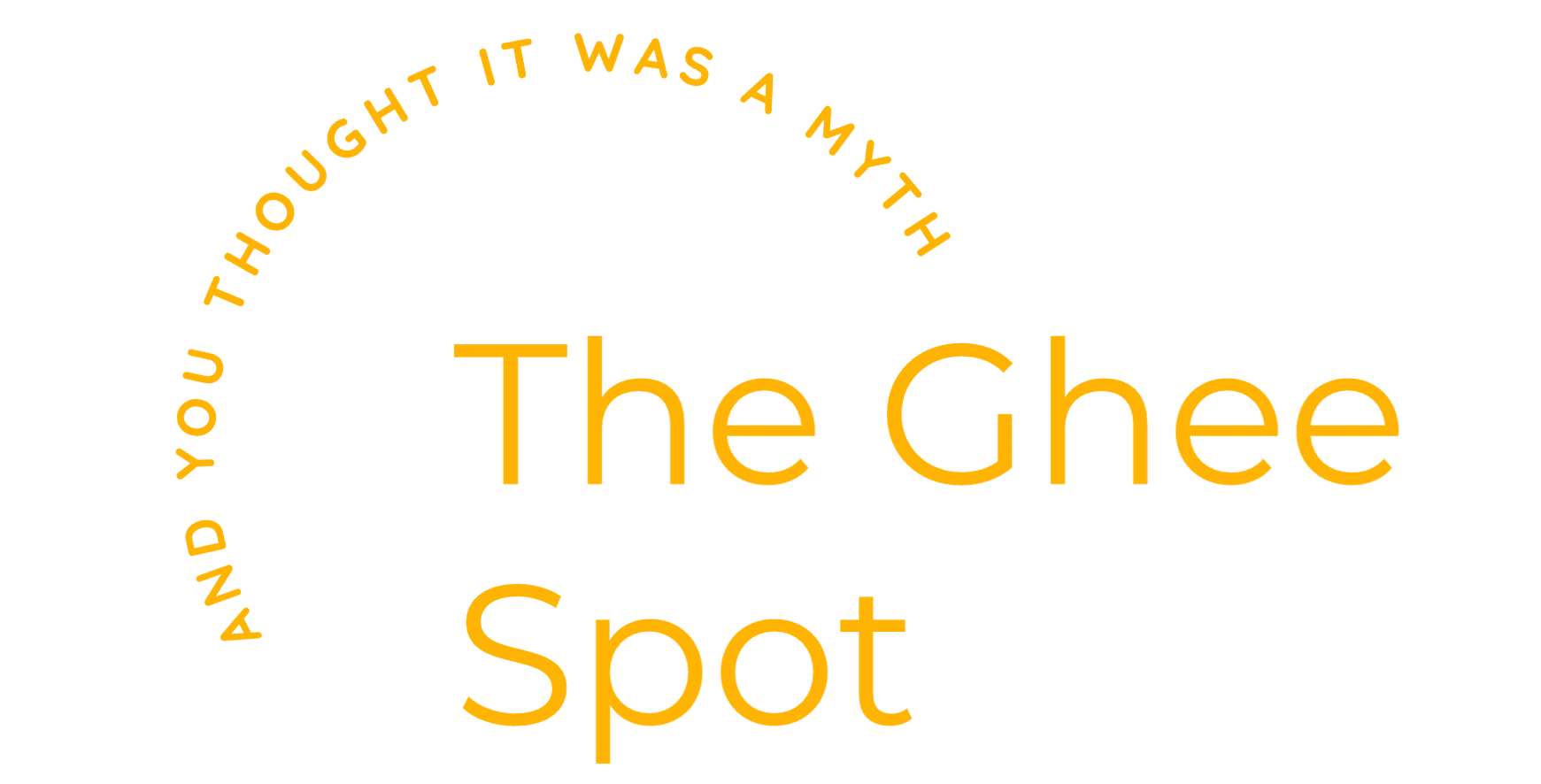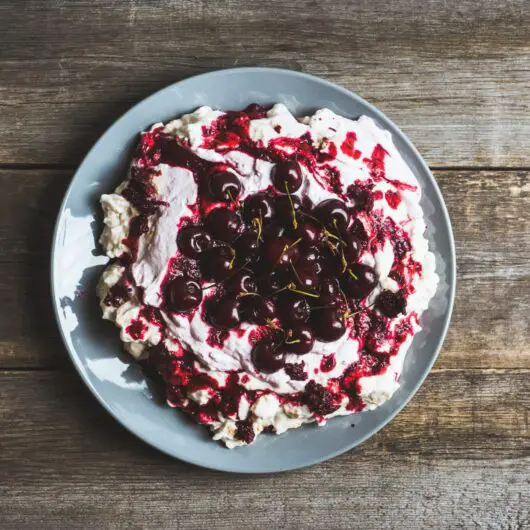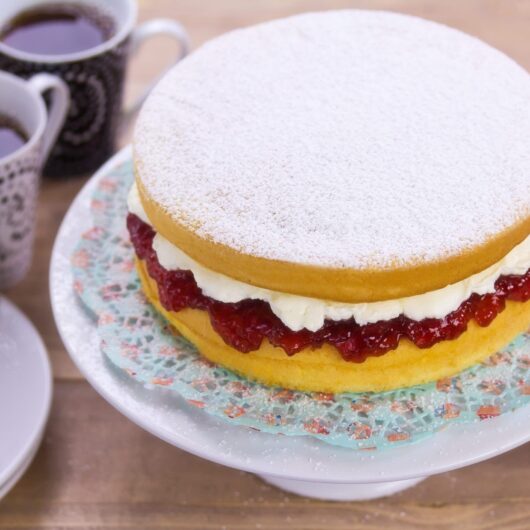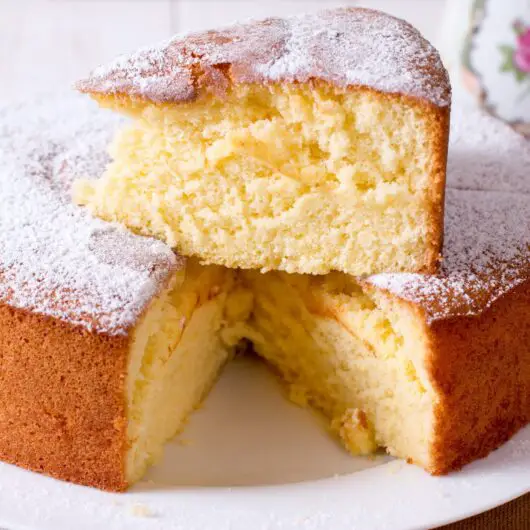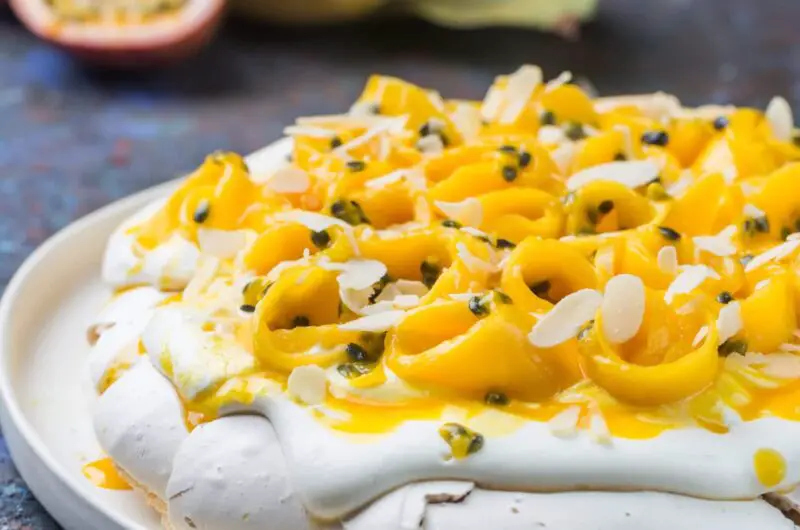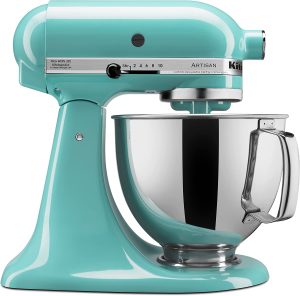A rose water pavlova is elegant, rich in flavor and texture, and will wow the harshest of critics.
Pavlovas are one of my favorite desserts. With their crisp edges, chewy marshmallow-like insides, they’re a true treat. On their own, they’re quite sweet, so the fresh whipped cream, and slight acidic nature of the mango help to nicely balance out the sugar. The rose water adds a slight floral scent and flavor, again, helping to really balance out that sugar and make the dessert feel even lighter. The rose water pavlova is an absolute feast for the senses, with the beautiful colors, smells, textures, and flavors.
It’s most commonly a summer dessert, given the lightness of it and that it travels well without refrigeration, but with modern science, any time is a good pavlova time.
I wouldn’t call this the easiest dessert in the world to make, but well worth the sweat and tears. The reason you heat the sugar before adding it into your meringue is because it helps to make it firmer and have a glossier texture. The main pit falls of meringue is not beating it enough and having it be flat and grainy, or the opposite of over beating your eggs resulting in hard and dry pavlova. It’s important to not lose patience when making this dessert. It has to be light, airy, with stiff peaks. Also, don’t stray away from the basic ingredients of the recipe, but feel free to use any fruit instead of mango. For example, on my cardamom pavlovas, I love using raspberries and cherries. In my recipe, I’ve suggested slightly larger sized pavlovas but you can make mini pavlovas or one huge one, for a cake like serving, if you’d prefer – just keep an eye on the bake, as it’ll alter the timing. Like there weren’t enough pitfalls listed here, make sure to not be overly generous with the rose water, you don’t want dessert to taste like soap or grandma…you know because grandmas tend to wear floral perfume…no? maybe it’s just mine.
Fun fact #999: Pavlovas are said to be named after the famous Russian ballerina Anna Pavlova, in honor of the dancer during or after one of her tours to Australia and New Zealand in the 1920s. Though there’s some heated debate over the nationality of the creator of this dessert. Research initially suggested the dessert was created in Australian or New Zealand, but later research shows it was created in the US on the basis of an Austrian dessert. Either way – it’s fabulous!
